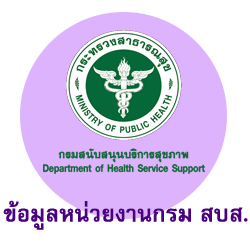EFFECTS OF MEDITATION OF PRE-OPERATIVE PATIENTS IN CHIANG RAI PRACHANUKROH HOSPITAL
Keywords:
Hypertension, Surgical patient, SKTMeditationAbstract
Operative procedure can induce fear, anxiety, and insomnia in patients. Pre-operative period is often the most stressful time for patients which can even lead to rescheduling of the operation. In recent years, meditation is gaining popularity as an intervention to reduce stress pre-operative patients. Meditation can helps reduce heart rate, respiratory rate, and blood pressure.To compare blood pressure between pre-operative patients whom receive routine nursing care alone and whom receive routine nursing care and practice meditation. Interrupted time series study type. Pre-operative room of Chiang Rai Prachanukroh hospital during office hours First group (control group): receive routine nursing care by staff nurse. 771 patients. Collecting data period: January-march 2560 Second group (intervention group): receive routine nursing care and practice meditation. 772 patients Collecting data period: april-june 2560 Record vital signs at arrival and 20 minutes later. T-test rank sum test and Gaussian regression is used for statistical analysis Sex, age and duration of admission in both groups do not differ. Control group tends to have lower level of education and have less surgical history. Control group also admitted for general surgery and orthopedics surgery more than intervention group. Underlying diseases is also more common in control group. At the end of study, intervention group have lower systolic blood pressure than control group (8.9 ± 12.9 mmHg and 6.9 ± 14.6mmHg, p-value < 0.001). Meditation in pre-operative patients can reduces blood pressure and should be apply in all patient with history of hypertension.
References
Chomchuen Somprasert. (1982). The effect of Buddhist Meditation on the Level of Anxiety. Master of Science (Clinical Psychology). Bangkok: Graduate Studies, MahidolUniversity.
Pongpan Aroonsang. (2008). Nursing care for coronary artery disease. Khon Kaen: Faculty of Nursing, Khon Kaen University.
Thitisuda Somwatee, LinchongPothiban&Parade eNanasilp.(2011). Effect of Thai Qigong meditation exercise on blood pressure of the elderly withhypertension. Nursing Journal, 38(4): 81-92.
Somporn Kantaradusdi-Triamchaisri. (2007). Meditation for Health Healing. Bangkok: Faculty of Public Health, Mahidol University.
MedtitationHealing. (2017). Meditation Therapy. Retrieved from http//www.hypnosishappy.com.
Pongpan Kirdpitak. (1991). “Counseling Skill”: Relaxation and Reduce Anxiety Systematically. “Basic Counseling Technique” .Nonthaburi: Sukhothai Thammathirat Open University.
Chatchawan Panyapayatjati. ( 2014). Emotion: Pathogen Factors Should not be Overlooked. Retrieved fromhttp://www.thaihealth.or.th.
Downloads
Published
How to Cite
Issue
Section
License
Copyright (c) 2019 Journal of Department of Health Service Support-วารสารวิชาการกรมสนับสนุนบริการสุขภาพ

This work is licensed under a Creative Commons Attribution-NonCommercial-NoDerivatives 4.0 International License.



